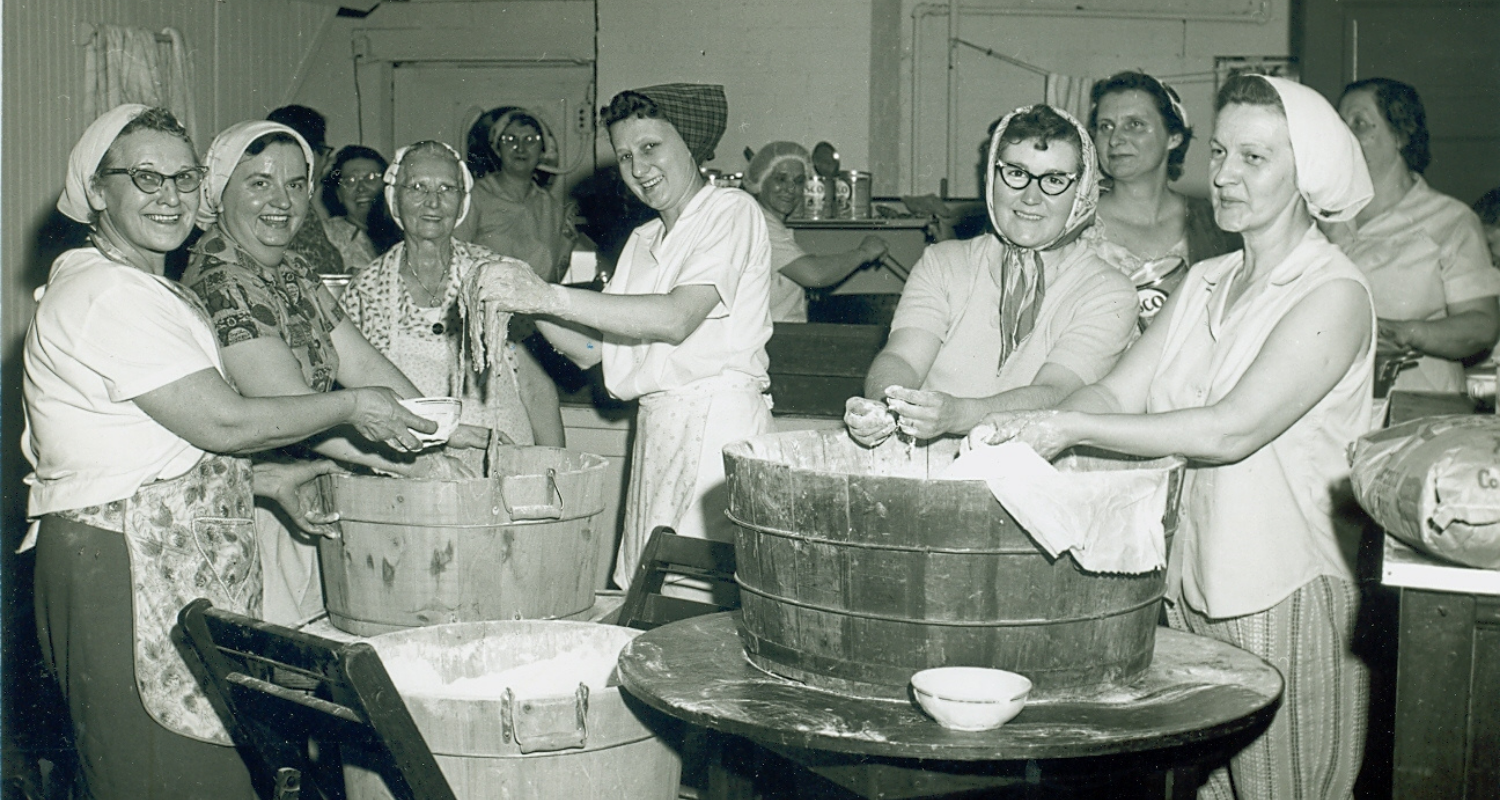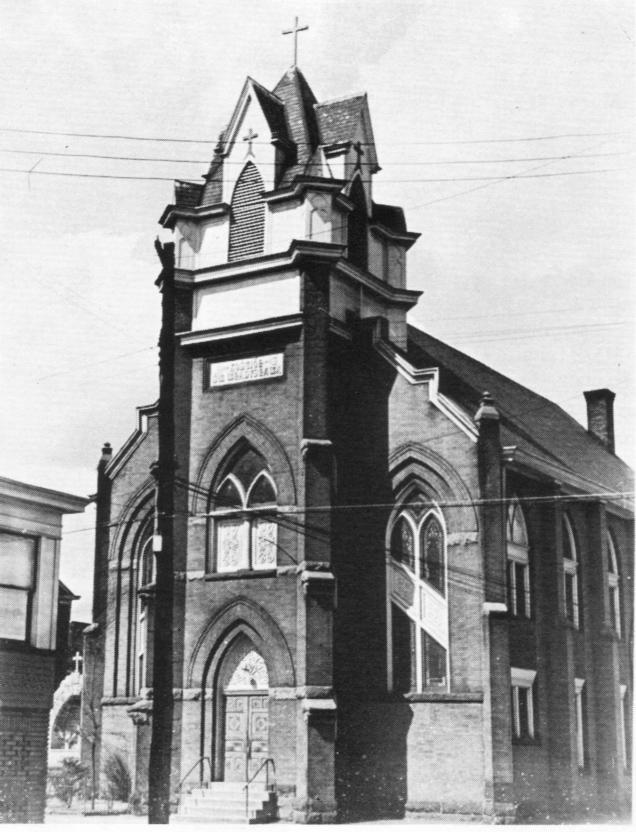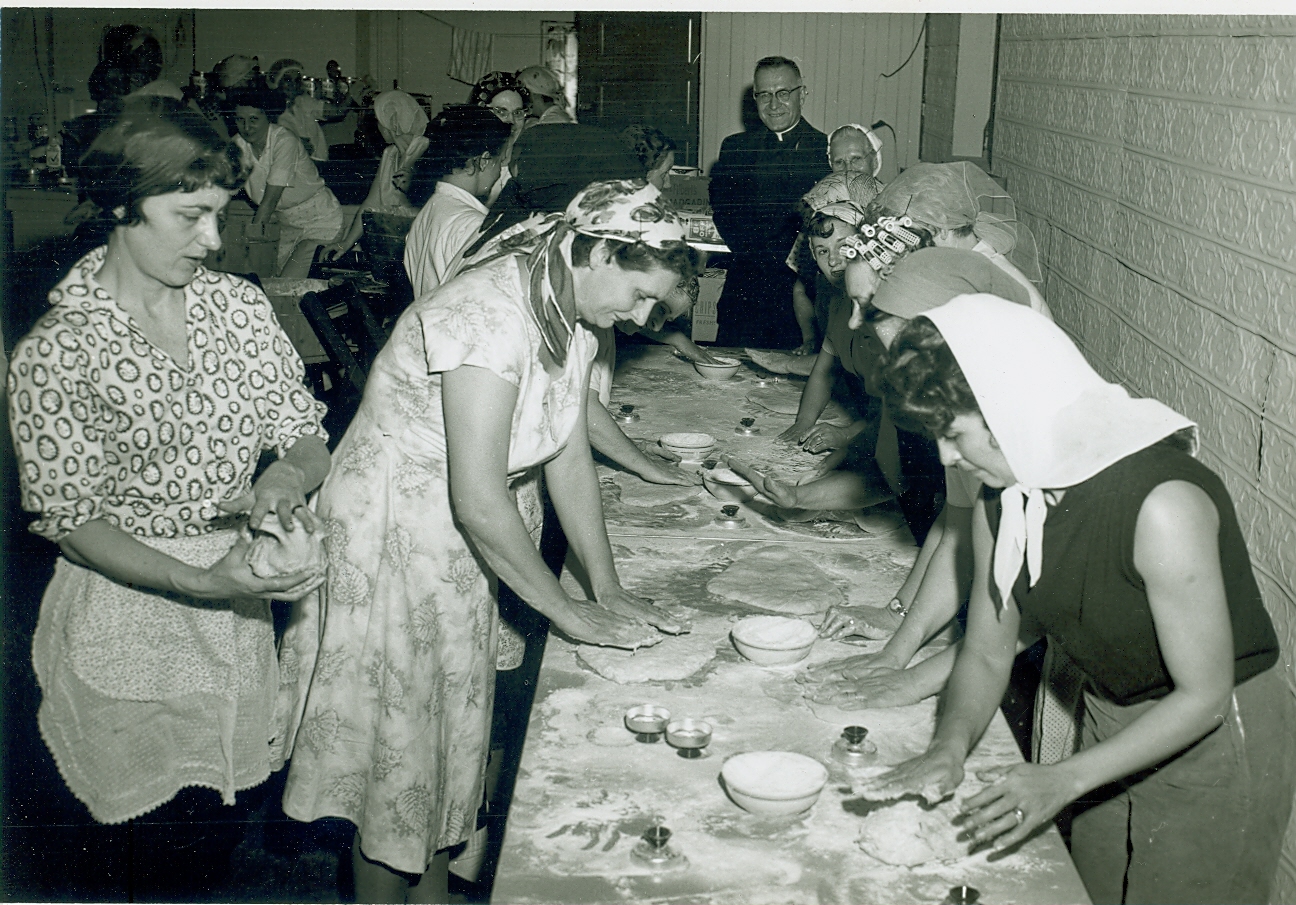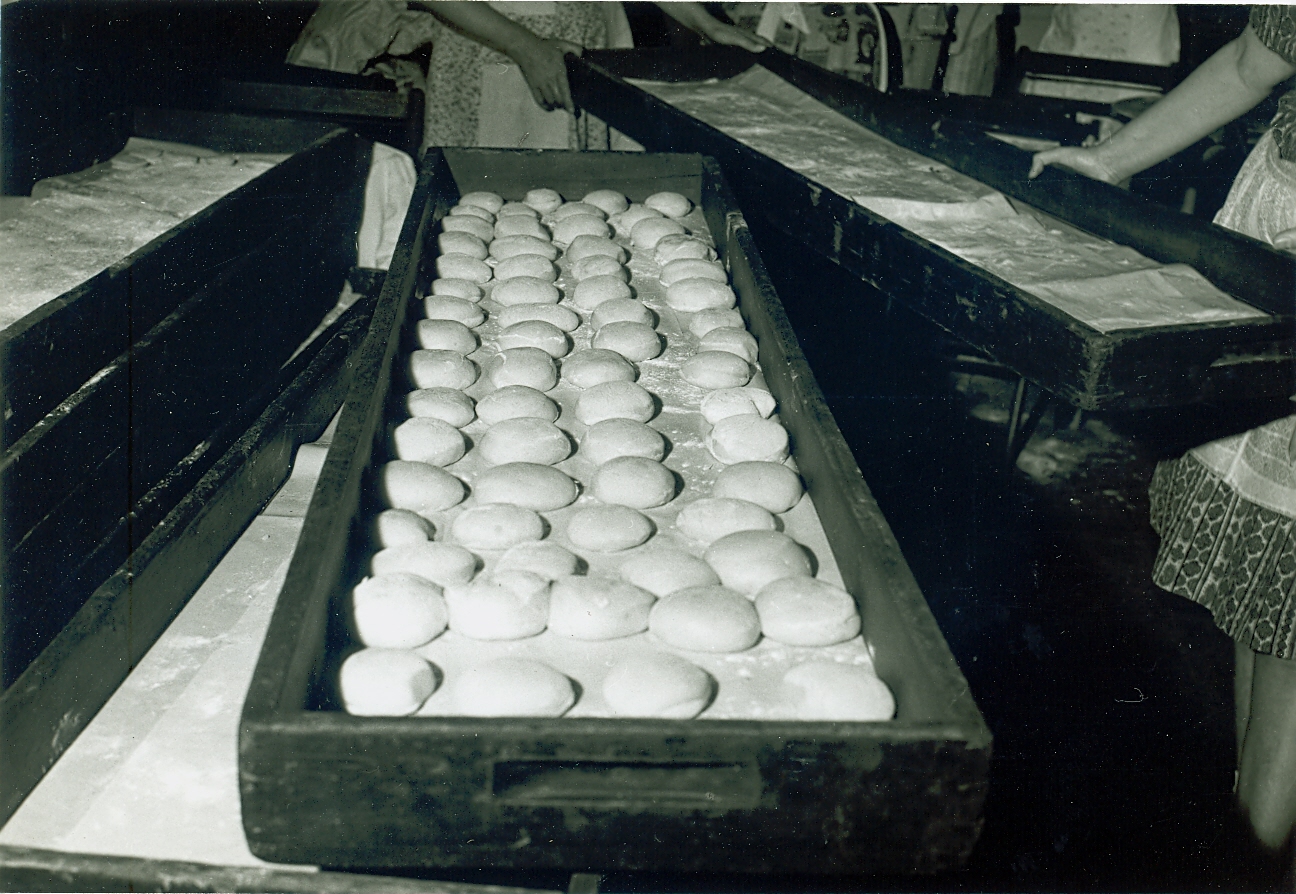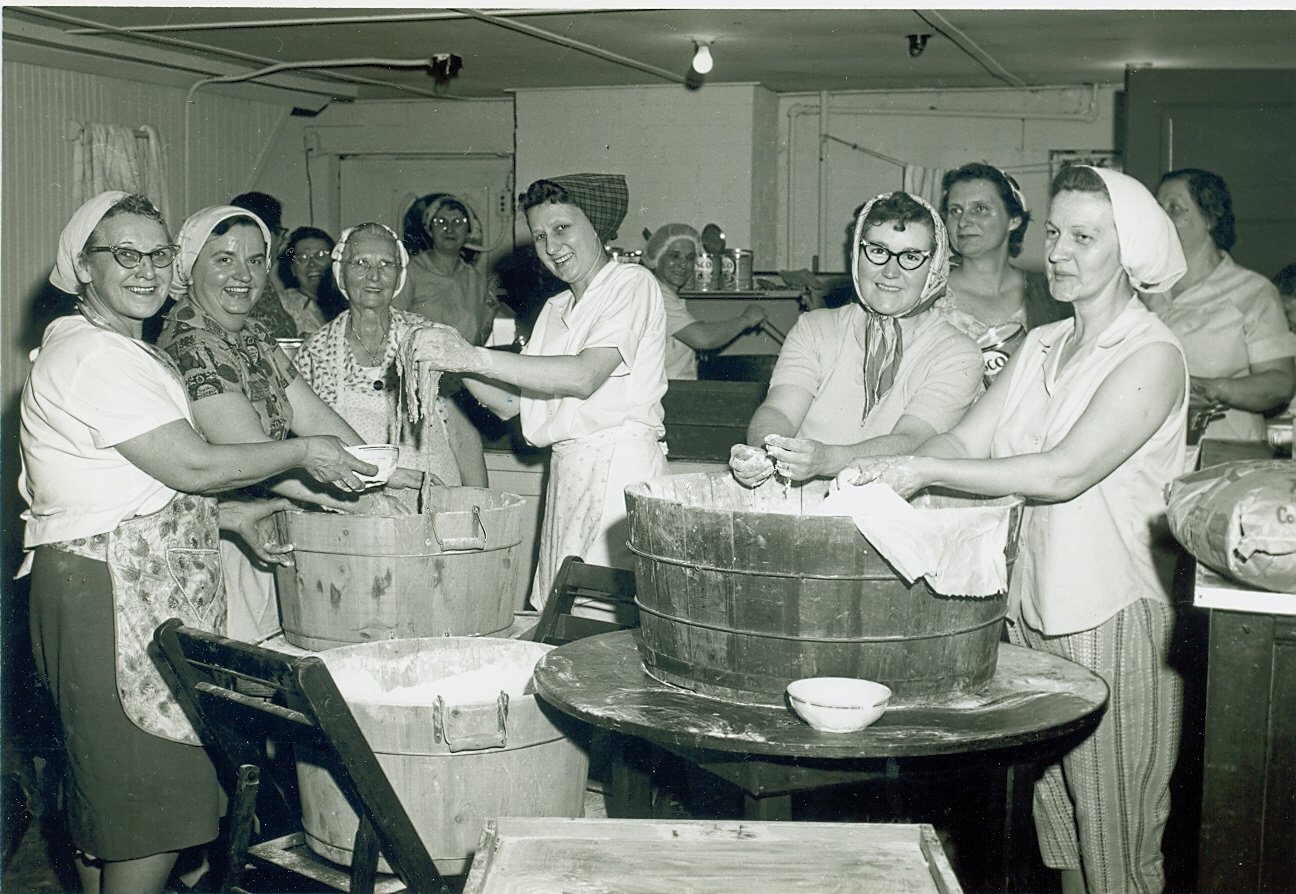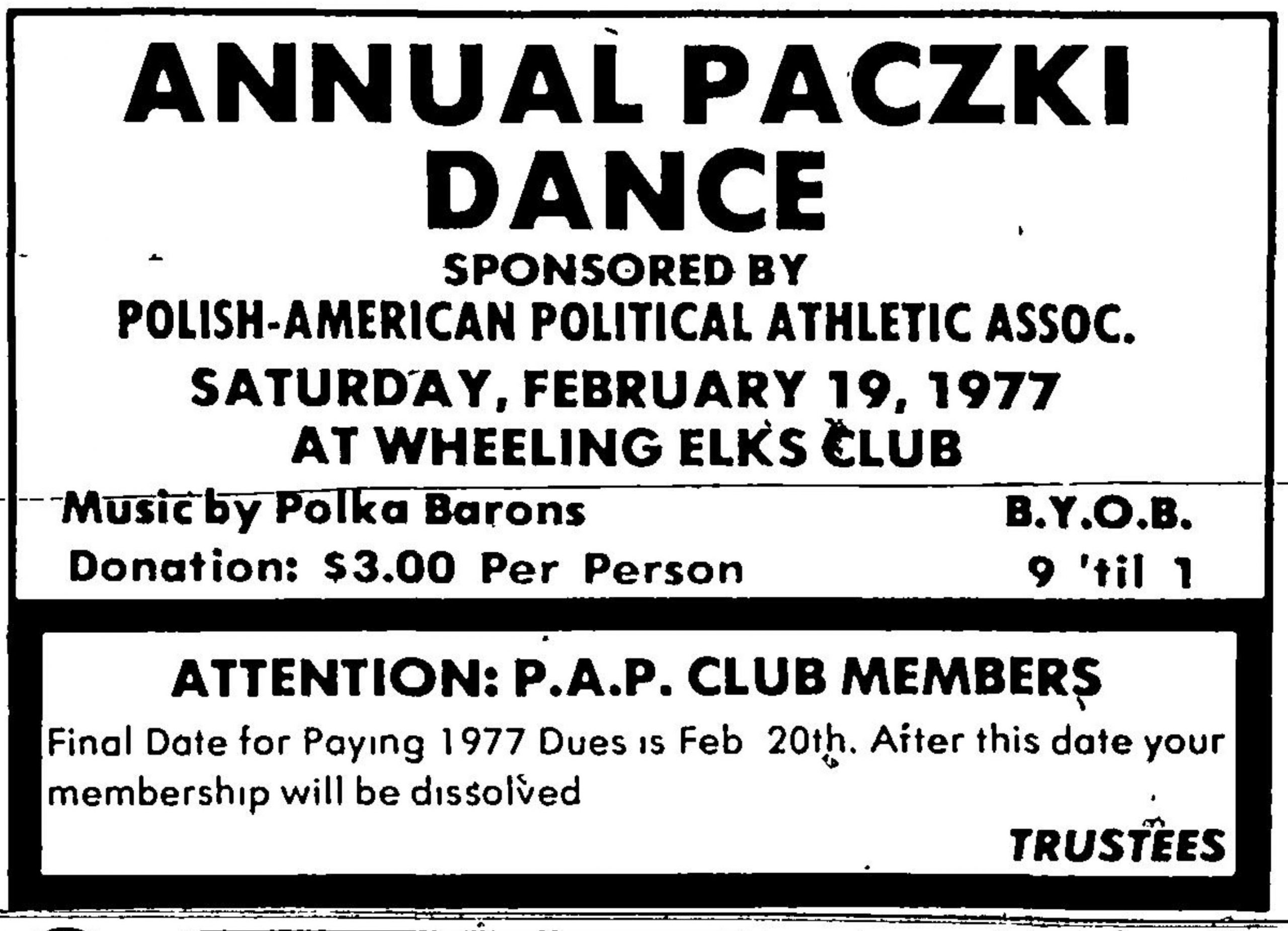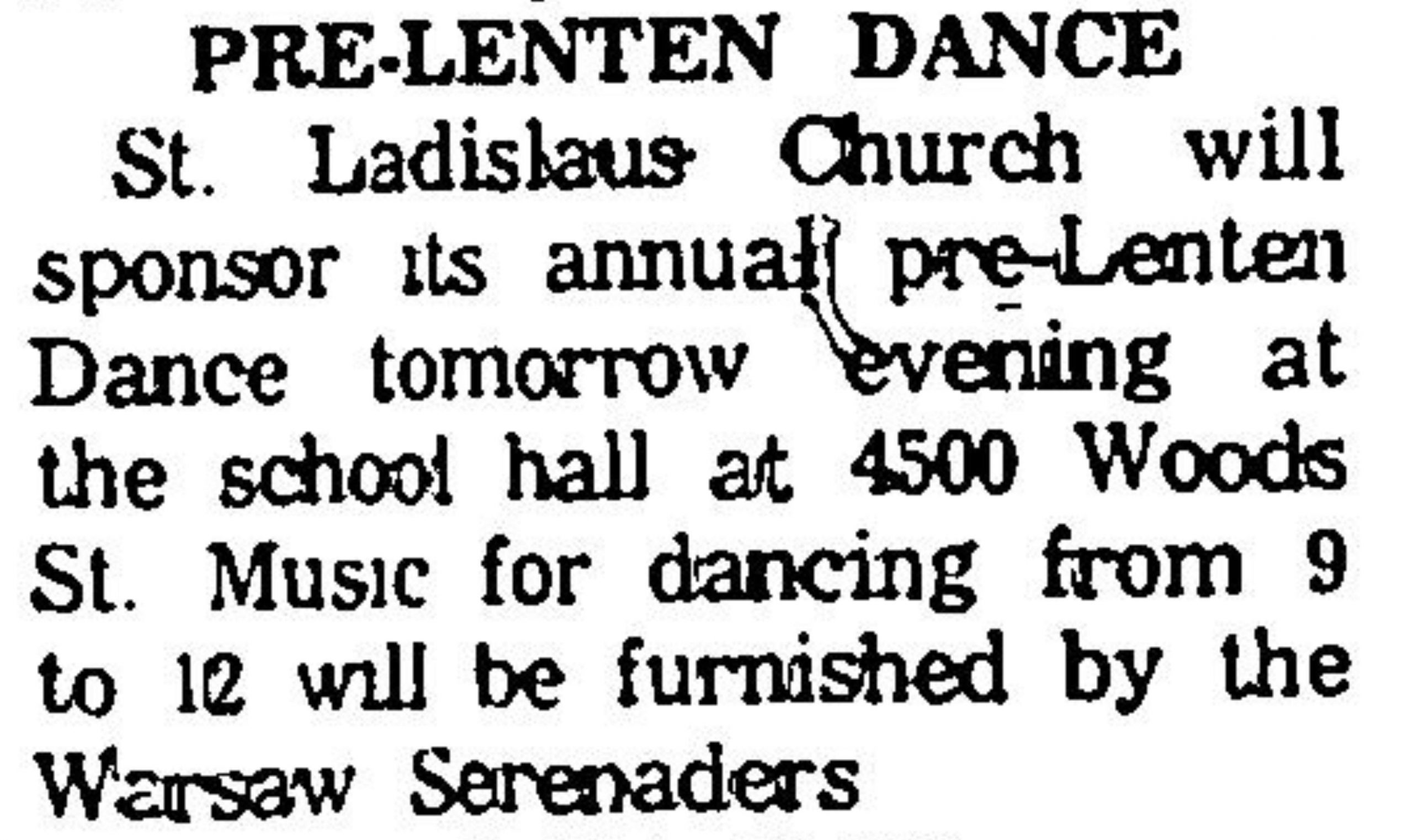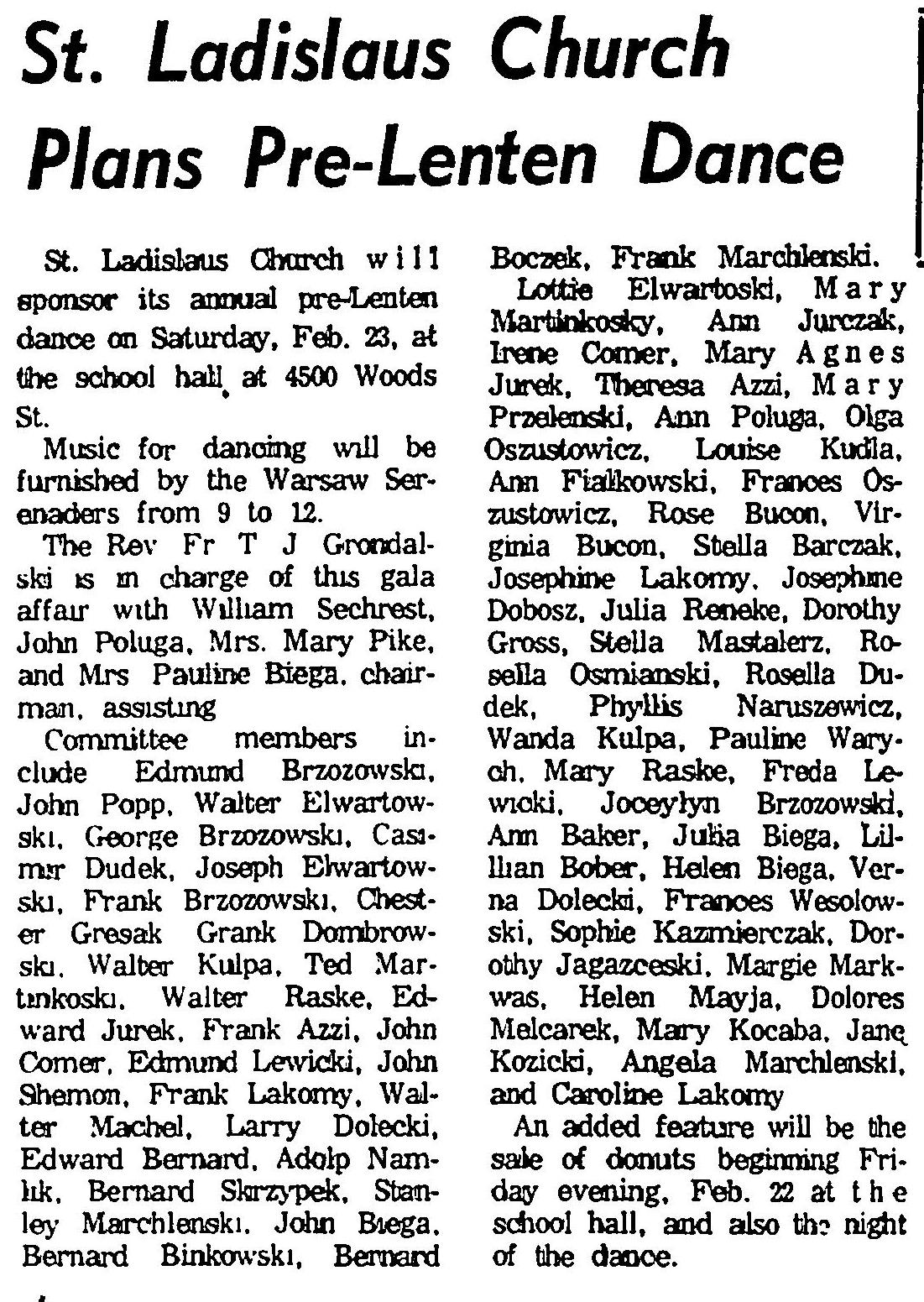This time of year, the women of St. Ladislaus parish in South Wheeling would begin gathering ingredients. For their project, they needed approximately 200 pounds of flour, 30 pounds of butter, 45 pounds of sugar…and lard. Lots of lard. Over 100 pounds of lard.1 With their headscarves on, they set to mixing up their collected ingredients in wooden tubs in the St. Ladislaus Parish Hall. The smell of sweet fried dough would waft up through the floorboards and distract the school children who waited patiently for their turn to feast on their creations.
They were making paczki (ponch-key), an important late-winter food in the Polish community. Paczki are often described as a “Polish donut,” but for those lucky enough to sample the real thing, that is an oversimplification of this culinary creation. While larger bakery operations may fill their paczki with jam spreads, creams, and custards, the St. Ladislaus paczki are remembered to be light, almost brioche-like, and without filling.2
What was the Paczki Ball?
So why donuts? Why now? Lent, the forty days before Easter, was traditionally a time of fasting and contemplation. Music and dancing were discouraged, and rich foods like butter and sugar were not consumed. In an effort not to waste valuable pantry items, people would make and consume paczki on the day before Lent. An air of revelry and celebration often accompanied the consumption of these tasty treats. If this sounds a bit like Mardi Gras, you’re not wrong. Many Western European countries and their diasporic communities have their own versions of a pre-lenten blowout celebration.
Here in Wheeling, there was the Paczki Ball. From time immemorial (or at least when the first Poles showed up in town), a pre-lenten celebration was held. Wheelingites who were lucky enough to attend the fabled Paczki Ball remember the packed dance floor, loud polka music, and delicious paczki.
Remembering the Paczki Ball
Despite it being a well-loved celebration, the Paczki Ball is difficult to locate in the written record. Most of the memories of the event are still “out in the community”; existing as oral histories or captions scribbled on the backs of photographs. Of course, it’s written about briefly in Hal Gorby’s book, Wheeling’s Polonia, and also shows up in Keith Maillard’s fiction which is based on his time growing up in Wheeling.
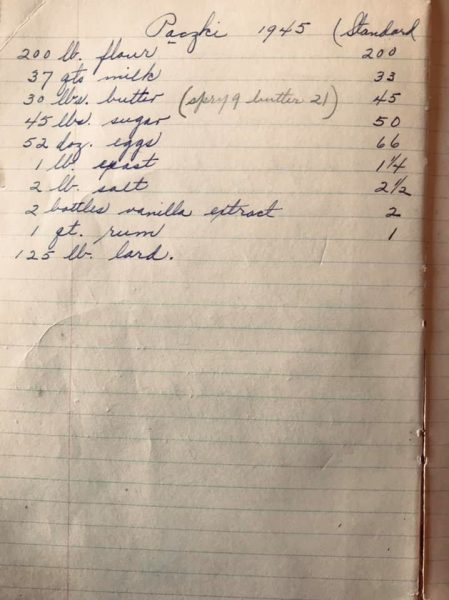
One asset for collecting these stories is through the Friends of Wheeling Facebook group. Posts recalling the Paczki Ball are peppered with memories of brown paper bags of delicious paczki, raucous celebrations, and learning how to dance on the toes of their parents. One bride even put her wedding reception off so that she and her family could celebrate at the “donut dance.” 3
Having a hard time imagining what the Paczki Ball might have sounded like? In 1963, the Warsaw Serenaders provided music for the dance. Based in St. Clairsville, the Warsaw Serenaders were picked up by Li’l Wally Jagiello’s polka-centric record label, Jay Jay records.4
[template_part type="video" title="Warsaw Serenaders- Polka Merry Go Round LP" description="" url="https://youtu.be/ycnWt6xol5s"]While Wheeling doesn’t celebrate Fat Tuesday with a Paczki Ball anymore, these delicious doughnuts are still a staple at bakeries across Wheeling and the Ohio Valley this time of year. What’s your favorite paczki filling? Tell us in the comments section below!
References
1 Gregory Skrzypek, Paczki Recipe,1945. Memories of Wheeling. February 17, 2021.
2 Daniel Skrzypek , Memories of Wheeling.
3 Kathy Kloeppner Dixon [Facebook Comment] Memories of Wheeling. February, 2022.
4 Li’l Wally Jagiello, International Polka Association. https://www.ipapolkas.com/blog/otw_pm_portfolio/lil-wally-jagiello-living-category-inducted-1969/
• Kate Wietor is currently studying Architectural History and Historic Preservation at the University of Virginia in Charlottesville, Virginia. She spent one glorious year in Wheeling serving as the 2021-22 AmeriCorps member at Wheeling Heritage. Since moving back to Virginia, she’s still looking for an antique store that rivals Sibs.


